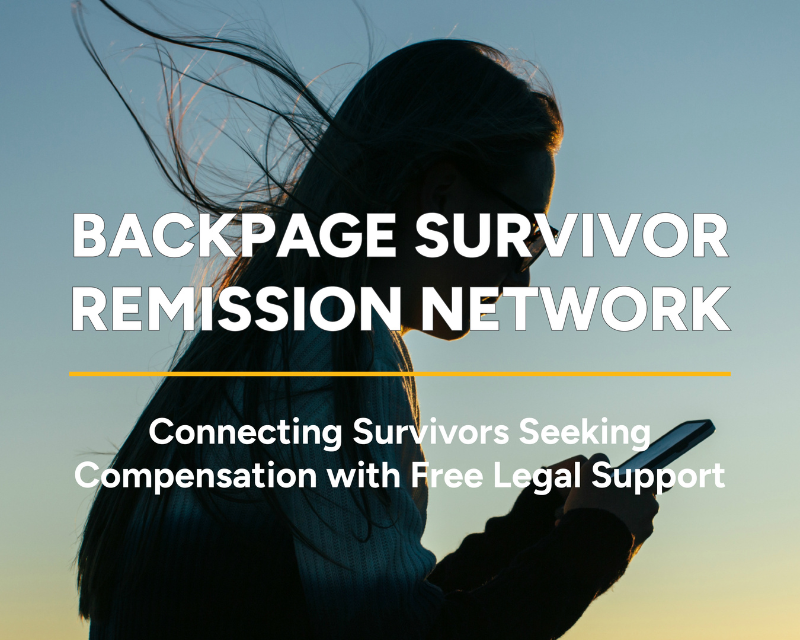
The private sector is a competitive environment, with companies continuously striving to be the top in their industry. But last week, we saw that many of these companies are willing to come together in the spirit of collaboration to address an issue that transcends brand names and profit margins.
We were in San Francisco at our partner Airbnb’s headquarters where we co-hosted an event that brought together numerous companies from a variety of industries in an effort to answer the question, how can the private sector come together to take a modern approach to fighting modern slavery?
Our Chief Operating Officer, Nancy McGuire Choi, sat on a panel with two local service provider partners who provided critical insights about how human trafficking affects the lives of victims and survivors on a daily basis, and how the private sector can leverage their unique capabilities and resources to join the fight against trafficking and support survivors, no matter where they are along their roads to recovery. The cross-industry audience was comprised of representatives from companies in the sharing economy, in technology, finance, transportation, and more, which made for a unique opportunity for these industries to come together to identify areas of alignment, gaps to fill, and other ways to collaborate and engage on this issue.
Why do we need to work with the private sector?
Human trafficking is a $150 billion global industry that robs approximately 25 million people around the world of their freedom. It isn’t simply a human rights abuse – it’s a business. Traffickers are in it for the profit. As with any enterprise, the business plan of a human trafficking venture is not built in a vacuum but rather exists within an ecosystem or matrix, depending on and intersecting with a range of legitimate industries and systems – cultural, governmental, environmental. Examples are abundant. Traffickers use banks to store their earnings and buses to move their victims around; hotel rooms are integral to the operations of some sex traffickers, social media is a vital recruitment trawling ground for others.
As we shared in our report, On-Ramps, Intersections, and Exit Routes: A Roadmap for Systems and Industries to Prevent and Disrupt Human Trafficking, governments can’t solve it alone, law enforcement can’t solve it alone, and nonprofits like us can’t solve it alone — fighting human trafficking will require participation by business and industry partners with resources at a comparable scale to the size of the problem. Participation requires not just passive support but actual, active commitment and effort on the part of businesses that unwittingly, but regularly intersect with traffickers, victims, and survivors.
How can we take a modern approach to fighting modern slavery?
In the most basic terms, this crime is a low risk, high profit proposition for traffickers. Our collective job is to flip the equation and increase the risks, make it harder to recruit victims, and to hit traffickers where it hurts the most — their profits.
But this is much easier said than done, because human trafficking is a dynamic crime. Like any good businessperson, traffickers respond to market forces, so we know they are adapting and thinking where they might go next. The ways they exploit their victims and conduct their illicit businesses are constantly changing and shape shifting, adapting their practices as new opportunities arise to exploit people and old methods become too risky.
We’ve seen an encouraging increase in awareness of this crime over the past decade — from training law enforcement to increased policies to support survivors and hold traffickers accountable for their crimes. However, traffickers often remain a step ahead of us, learning and manipulating modern technology and economic trends before governments and nonprofits can catch up. So, as certain industries and practices become more dangerous and less profitable for traffickers, they pivot to something new.
With technological capabilities and resources that far exceed those found in nonprofits or government and abilities to take action swiftly, the private sector can leverage their assets and expertise to shift the narrative and put us all a step ahead of the traffickers — disrupting trafficking as it happens and ultimately preventing it from occurring in the first place.
Furthermore, the private sector has unique opportunities to support survivors as they work to rebuild their lives. Actions such as donating services, facilitating employment opportunities, and adjusting internal and external policies to better meet the needs of survivors could mean the difference between survivors receiving the services and support they need, or falling back into an exploitative situation.
What’s next?
The event at Airbnb’s headquarters was a huge step in the right direction. It’s not often that companies from across industries — let alone within the same industry — put competitive differences aside and come together to help solve a major problem. The companies represented recognize that human trafficking is a complex system, diverse in nature and profiting off vulnerable members of our communities.
Tackling this issue can’t happen in a silo. Just as our technologies and economic platforms and practices are evolving, so too are the traffickers. Whether using credit cards, transporting victims on buses and airplanes, or using social media for recruitment, traffickers don’t respect industry lines — and neither should we when seeking solutions.
So, what’s next? We want to build on this momentum to expand the tent and invite new companies and partners to join the movement. Moreover, we want to bring the private sector together to engage in the fight against human trafficking, and ultimately beat traffickers at their own game. Learn more about our corporate partnerships.


